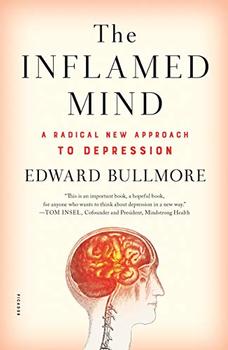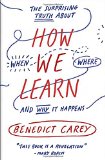Summary | Excerpt | Reviews | Beyond the book | Read-Alikes | Genres & Themes | Author Bio

Investigations into the Strange New Science of the Self
by Anil AnanthaswamyA tour of the latest neuroscience of schizophrenia, autism, Alzheimer's disease, ecstatic epilepsy, Cotard's syndrome, out-of-body experiences, and other disorders—revealing the awesome power of the human sense of self from a master of science journalism
Anil Ananthaswamy's extensive in-depth interviews venture into the lives of individuals who offer perspectives that will change how you think about who you are. These individuals all lost some part of what we think of as our self, but they then offer remarkable, sometimes heart-wrenching insights into what remains. One man cut off his own leg. Another became one with the universe.
We are learning about the self at a level of detail that Descartes ("I think therefore I am") could never have imagined. Recent research into Alzheimer's illuminates how memory creates your narrative self by using the same part of your brain for your past as for your future. But wait, those afflicted with Cotard's syndrome think they are already dead; in a way, they believe that "I think therefore I am not." Who - or what - can say that? Neuroscience has identified specific regions of the brain that, when they misfire, can cause the self to move back and forth between the body and a doppelgänger, or to leave the body entirely. So where in the brain, or mind, or body, is the self actually located? As Ananthaswamy elegantly reports, neuroscientists themselves now see that the elusive sense of self is both everywhere and nowhere in the human brain.
Ananthaswamy deserves credit for wading into this fraught and fecund arena. His book will strike many as a revelation. He presents a persuasive case that it's time to redefine the way we think of personhood, and that the paradigm of defining who we are by how we appear in the world no longer holds currency. Taken as a whole, the work that Ananthaswamy presents offers a prismatic portrait of humanity that focuses on the interior, not the exterior. The implications of this line of thinking are immensely profound: is our notion of selfhood about to be freed from an historically paralyzing body consciousness? Can conditions like autism initiate us into different and deeper understandings of the world? I don't know that The Man Who Wasn't There provides any specific answers to those bigger questions...continued
Full Review
(990 words)
This review is available to non-members for a limited time. For full access,
become a member today.
(Reviewed by James Broderick).
Western philosophy since the Renaissance has been governed by an idea so simple it could appear on a bumper sticker: "I think, therefore I am."
 The idea – originally expressed in French but more often rendered in Latin ("Cogito ergo sum") – came from a French philosopher of the 17th century named René Descartes, who is often called the father of modern philosophy. Among Descartes' many contributions (he was a brilliant mathematician and scientist as well), the "cogito" (as philosophers call it) remains his most significant contribution to the history of ideas.
The idea – originally expressed in French but more often rendered in Latin ("Cogito ergo sum") – came from a French philosopher of the 17th century named René Descartes, who is often called the father of modern philosophy. Among Descartes' many contributions (he was a brilliant mathematician and scientist as well), the "cogito" (as philosophers call it) remains his most significant contribution to the history of ideas.
In Anil Ananthaswamy's The Man Who Wasn't There, Descartes' most famous dictum not only makes an appearance, it serves as the backdrop for the entire work,...
This "beyond the book" feature is available to non-members for a limited time. Join today for full access.

If you liked The Man Who Wasn't There, try these:

by Edward Bullmore
Published 2019
Worldwide, depression will be the single biggest cause of disability in the next twenty years. But treatment for it has not changed much in the last three decades. In the world of psychiatry, time has apparently stood still...until now with Edward Bullmore's The Inflamed Mind: A Radical New Approach to Depression.

by Benedict Carey
Published 2015
In the tradition of The Power of Habit and Thinking, Fast and Slow comes a practical, playful, and endlessly fascinating guide to what we really know about learning and memory today—and how we can apply it to our own lives.



It was one of the worst speeches I ever heard ... when a simple apology was all that was required.
Click Here to find out who said this, as well as discovering other famous literary quotes!